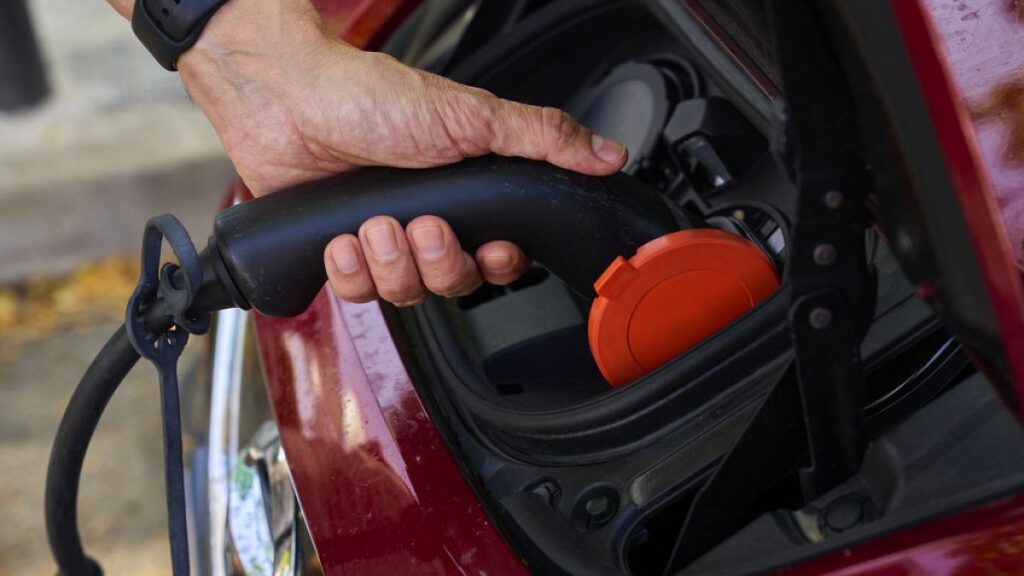AMG Lithium has opened Europe’s first lithium refinery in Bitterfeld-Wolfen, Germany, with the aim of producing enough lithium hydroxide for 500,000 electric cars per year. The refinery, constructed in just over two years at a cost of around 140 million euro, will mainly source its lithium from Brazil. The facility’s primary function is to convert raw materials into battery-compatible lithium hydroxide, a crucial component in electric vehicle (EV) batteries. As the demand for lithium continues to rise due to the global shift towards green energy solutions, the European Union introduced a Critical Raw Materials Action Plan in 2020 to reduce Europe’s reliance on external sources of supply.
The Bitterfeld-Wolfen refinery is expected to produce 20,000 tonnes of lithium hydroxide annually, supporting the growing need for lithium in the EV industry. Lithium-ion batteries are commonly used in hybrid and electric vehicles, providing an unbeatable combination of performance and range according to managing director Stefan Scherer. With the future prospect of extracting lithium from European mines, such as those in Portugal and the Ore Mountains, the refinery represents a step towards localizing the production of this essential resource. By establishing a domestic source of lithium, Europe can strengthen its supply chain and reduce its dependence on imports.
The establishment of the lithium refinery in Germany marks a significant milestone in the region’s efforts to support the transition to electric vehicles and sustainable energy solutions. With lithium playing a pivotal role in powering EV batteries, the refinery’s production capacity is aligned with the increasing demand for electric cars. Europe’s focus on critical raw materials, including lithium, underscores the continent’s commitment to creating a more resilient and sustainable supply chain for key resources. By investing in a domestic source of lithium production, the EU aims to secure its access to this essential material.
The development of Europe’s first lithium refinery highlights the continent’s ambitions to lead the way in sustainable transportation and energy storage. Lithium-ion batteries have become essential for powering electric vehicles, making lithium a highly sought-after material in the automotive industry. By producing lithium hydroxide for 500,000 electric cars annually, the Bitterfeld-Wolfen refinery represents a crucial step towards meeting the rising demand for EV batteries. As electric vehicles become more prevalent on the roads, ensuring a stable and local supply of lithium is essential for supporting the expansion of the electric vehicle market.
The construction and operation of the lithium refinery in Bitterfeld-Wolfen demonstrate a commitment to reducing Europe’s reliance on external sources of critical raw materials. By extracting lithium from European mines and processing it domestically, the refinery contributes to the EU’s goal of enhancing supply chain security and sustainability. As countries around the world increase their focus on renewable energy and electric transportation, the demand for lithium is expected to continue growing. Establishing a local source of lithium production will help Europe meet this demand while reducing its dependence on imports from overseas.
In conclusion, the opening of Europe’s first lithium refinery in Bitterfeld-Wolfen represents a significant step forward in the region’s efforts to support the transition to electric vehicles and renewable energy. With the capacity to produce enough lithium hydroxide for 500,000 electric cars per year, the refinery plays a key role in meeting the growing demand for lithium in the EV industry. By sourcing lithium from Brazil and eventually from European mines, the refinery aims to establish a more sustainable and secure supply chain for this critical raw material. As electric vehicles become more prevalent, ensuring a stable supply of lithium is vital for supporting the expansion of the electric vehicle market and reducing Europe’s reliance on external sources.













